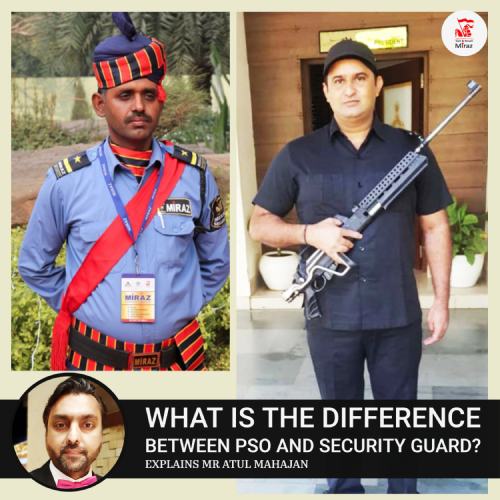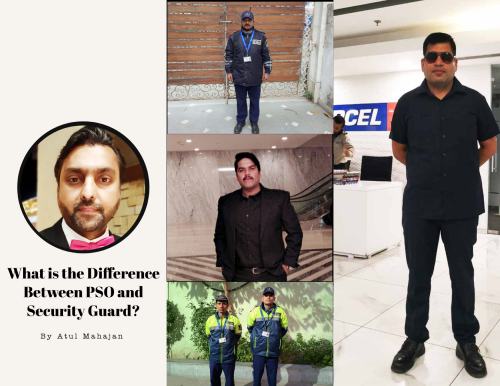Explains India’s Top Security Company Providing PSO and Security Guards
In today’s complex and ever-changing world, the need for security is paramount. When it comes to safeguarding our communities, private security officers and security guards play integral roles. While these titles are often used interchangeably, there are significant differences in their responsibilities, positions, hierarchy, and overall roles.
In this blog post, Miraz Securitas the top security company providing PSO and Security Guards in Delhi, Gurgaon, and NOIDA, delves into the nuances of these roles and shed light on their unique contributions to the field of security.
Even though security guards and private security officers both protect people and property, there are some key differences between them.
Definition
A security guard refers to an individual employed to protect people, property, or assets, often within a specific location such as a building or event venue. They enforce rules, monitor surveillance systems, and provide a visible presence to deter potential security threats.
A private security officer, on the other hand, is a professional hired by private companies or individuals to provide security services. They may have additional training and qualifications compared to security guards and can be employed for various tasks, including executive protection, surveillance, or specialized security roles.
Responsibilities
Security guards are stationed in fixed locations like museums, supermarkets, and events, monitoring activities, assisting visitors, and verifying credentials. They deter crime through patrols, control access, and respond to alarms, requiring less experience than security officers.
Unlike security guards, private security officers can travel to different locations to oversee security operations, collaborate with clients, manage and train security guards, and make independent judgments. They supervise multiple facilities, assign duties, and act as liaisons with law enforcement. With extensive experience, leadership skills, and specialized training, they ensure an efficient emergency response.
Position and Hierarchy
Security guards, typically hold entry-level positions within security departments. They undergo basic training to fulfil their duties effectively. While security guards may advance to supervisory roles or specialize in specific areas of security, their positions are generally more standardized and less dynamic than those of private security officers. Security guards report to security officers for tasks and supervision at the next level.
Private security officers operate within a structured hierarchy, where different levels of authority and responsibility exist. Starting from the bottom, they may progress from security officers to senior security officers, lead security officers, director of security, and ultimately, chief security officers. The hierarchy reflects an increase in responsibilities, including managing teams, coordinating security operations, and liaising with clients and law enforcement agencies.
Qualifications required
Apart from obtaining formal education up to at least Class 8, Class 10, or beyond from a recognized educational institution, security guards must possess proficiency in reading, writing, and verbal communication in the local language.
The educational qualifications required to become a private security officer in India may vary, but a minimum high school diploma or an undergraduate degree is generally required.
Training
Security guards receive training in security law, criminal law, public conduct, physical security, access control, IED handling, crowd control, defensive driving, theft prevention, first aid, CPR, surveillance, CCTV use, firefighting, fire extinguishers, evacuation, rescue operations, police procedures, firearms, leadership, and management.
Private security officers must possess a diverse skill set, acquired through rigorous training in risk assessment, tactical maneuvers, conflict resolution, and emergency response. They are often ex-military or law enforcement personnel with specialized expertise.
Salary
Security officers typically receive higher compensation compared to security guards. Moreover, they are entitled to additional perks such as shift differentials, communication allowances, and transportation benefits, which are not extended to security guards.
Thus, by recognizing disparities between private security officers and security guards allows for tailored security services and a safer environment.
- Home Security Tips If You Are a Single Mom - July 26, 2024
- What Can Security Do To Protect A Mine Site? - July 17, 2024
- What a Security Guard can do for an Oil and Gas Plant Unit? - July 12, 2024

